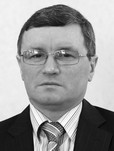Job-related emotional burnouts of sport coaches
Фотографии:
ˑ:
Dr.Hab., Associate Professor I.K. Latypov1
PhD, Associate Professor Z.T. Usmanova1
1Volga Region State Academy of Physical Culture, Sport and Tourism, Kazan
Presently in sport science a growing priority is given to the studies designed to detect, test, forecast, prevent and correct every manifestation of a job-related emotional burnout in sport coaches. The coach’s emotional burnout may be defined as the long-lasting health condition of professional highly determined for success albeit facing some problems in their careers as manifested in emotional draining, depersonalizing and underrating own professional accomplishments. Objective of the study was to detect, rate and analyze the coaches’ emotional burnouts in a few sport disciplines including competitive martial arts and football. Children and Youth Sport School (CYSS) trainers-instructors in martial arts (n-20) and football (n=20) were sampled for the study purposes. The sample was split up into the following three service-term-specific groups: under-10 years; 11-20 years; and 21+ years of service. The study data were subject to a comparative analysis to rate the service-specific burnouts in the sample. The study findings may be interpreted as indicative of the professional coaching service being highly exposed to the risk of a job-related burnout and, hence, the exposure needs to be closely controlled both by the risk group on its own and by the CYSS management.
Keywords: job-related emotional burnout, emotional burnout models, emotional draining, depersonalizing and underrating of own professional accomplishments.
References
- BoykoV.V. Energiya emotsiy: emotsii v obschenii. Emotsii v proyavleniyakh lichnosti. Sozidayuschaya i razrushayushchaya sila emotsiy. Metodiki dlya izucheniya emotsiy [Energy of emotions: emotions in communication. Emotions in manifestations of personality. Creative and destructive power of emotions. Techniques for study of emotions]. 2nd ed., Rev., Sup.. St. Petersburg: Piter publ., 2004, 474 p.
- Borisova M.V. Psikhologicheskie determinanty psikhicheskogo vygoraniya u pedagogov. Avtoref. dis. kand. psh. nauk [Psychological determinants of mental burnout in teachers. PhD diss. abstract]. Yaroslavl, 2003, 18 p.
- Vodopyanova N.E., Starchenkova E.S. Sindrom vygoraniya: diagnostika i profilaktika [Burnout Syndrome: Diagnosis and Prevention]. 2nd ed., Sup .. St. Petersburg: Piter publ., 2008, 336 p.
- Vodopyanova N.E. Profilaktika i korrektsiya sindroma vygoraniya: metodologiya, teoriya, praktika [Prevention and correction of burnout syndrome: methodology, theory, practice]. St. Petersburg: SPb SU, 2011, 160 p.
- Maslach K. Professionalnoe vygoranie: kak lyudi spravlyayutsya. Praktikum po sotsialnoy psikhologii [Professional burnout: coping strategies. Practical course on social psychology]. St. Petersburg, 2001, 234 pp.
- Orel V.E. Issledovanie fenomena psikhicheskogo vygoraniya v otechestvennoy i zarubezhnoy psikhologii [Study of mental burnout phenomenon in domestic and foreign psychology]. Problemy obschey i organizatsionnoy psikhologii [Problems of General and Organizational Psychology], Yaroslavl, 1999, pp. 77-89.
- Orel V.E. Sindrom psikhicheskogo vygoraniya lichnosti [Mental burnout syndrome]. Moscow, 2005, 330 p.
- Popova T.A., Bogomyagkova O.N. [ed.]. Emotsionalnoe vygoranie, stress i sovladayuschee povedenie v pedagogicheskoy deyatelnosti [Emotional burnout, stress and coping behavior in teaching activity]. Perm: PSPU publ., 2013, 76 p.
- Volkova I.P. Praktikum po sportivnoy psikhologii [Practical course on sports psychology]. St. Petersburg: Piter publ., 2002, 288 p.
- Suchilin A.A. Izuchenie lichnostnykh kachestv trenera [Study of coach's personal qualities]. Voprosy optimizatsii uchebno-trenirovochnogo protsessa yunykh futbolistov [Questions of optimization of training process in youth football]. Collected works. Volgograd, 1988, pp. 69–78.



 Журнал "THEORY AND PRACTICE
Журнал "THEORY AND PRACTICE